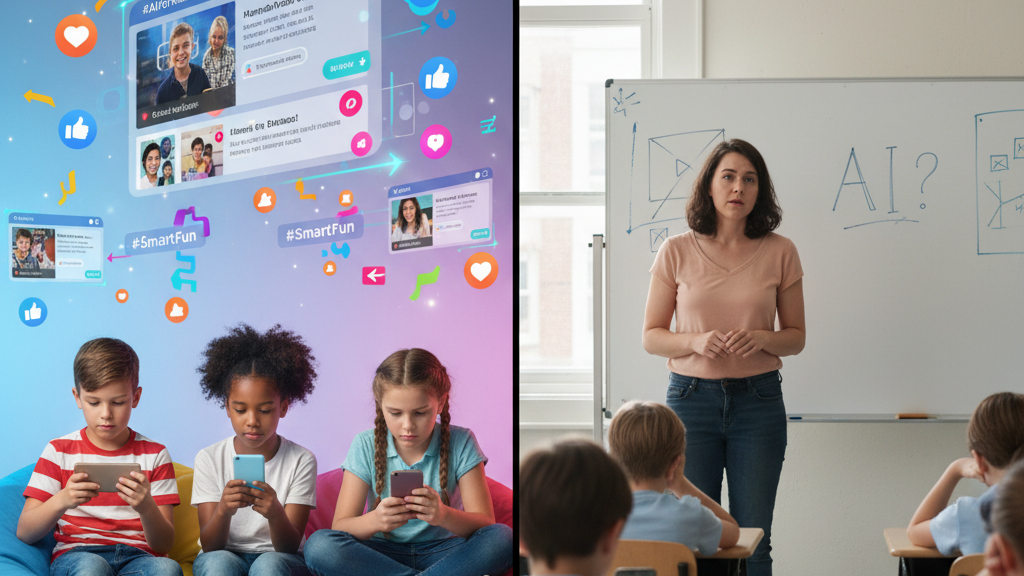
Source
The Conversation
Summary
Students are learning to use AI mainly through TikTok, Discord, and peer networks, while teachers rely on informal exchanges and LinkedIn. This creates quick but uneven knowledge transfer that often skips deeper issues such as bias, equity, and ethics. A Canadian pilot project showed that structured teacher education transforms enthusiasm into critical AI literacy, giving educators both vocabulary and judgment to integrate AI responsibly. The article stresses that without institutional clarity and professional development, AI adoption risks reinforcing inequity and mistrust.
Key Points
- Informal learning (TikTok, Discord, staff rooms) drives AI uptake but lacks critical depth.
- Teacher candidates benefit from structured AI education, gaining language and tools to discuss ethics and bias.
- Institutional AI policies are fragmented, leaving instructors without support and creating confusion.
- Equity and bias are central concerns; multilingual learners may be disadvantaged by uncritical AI use.
- Embedding AI literacy in teacher education and learning communities is critical to move from casual adoption to critical engagement.
Keywords
URL
Summary generated by ChatGPT 5

